| 12.00-12.30 | Registra on |
| 12:30-13:30 Opening Speec | Mehtap ÇİÇEN, Conference Chair Prof. Necmettin Atsü, Rector of Istanbul Kent University |
| 13:0–13:40 | Quality Management & Sustainability in Higher Education Institutions |
| Prof. Dr. Hatice CAMGÖZ AKDAĞ (Istanbul Technical University) 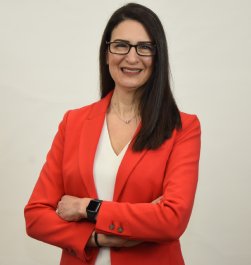 |
This topic “Quality Management & Sustainability in Higher Educa on Ins tu ons” by Prof. Dr. Ha ce Camgöz Akdağ explores the intersec on of quality management and sustainability within higher educa on, emphasizing their synergis c rela onship in achieving long-term ins tu onal goals. The presenta on begins by defining quality through the lenses of renowned gurus like Deming, Juran, and Crosby, highligh ng principles such as con nuous improvement, customer focus, and zero defects. It then transi ons to sustainability, outlining its three pillars— economic, social, and environmental—and linking them to the United Na ons’ Sustainable Development Goals (SDGs), par cularly Goal 4 (Quality Educa on), Goal 5 (Gender Equality), and Goal 8 (Decent Work). A key focus is the role of universi es in advancing the SDGs through educa on, research, governance, and external leadership. The document argues that higher educa on ins tu ons must integrate sustainability into their core opera ons, using frameworks like the Global Repor ng Ini a ve (GRI) to align quality assurance with sustainability standards. This involves fostering interdisciplinary research, embedding sustainability in curricula, and engaging stakeholders to ensure accountability and con nuous improvement. The conclusion underscores the need for sustainability standards to complement tradi onal accredita on, ensuring holis c quality assurance that addresses academic performance, environmental stewardship, and social equity. A call to ac on urges ins tu ons to adopt strategic quality management, pilot small-scale ini a ves, and measure outcomes to drive cultural change. Overall, the document provides a comprehensive roadmap for universi es to harmonize quality and sustainability, posi oning them as pivotal actors in global sustainable development efforts. Keywords: Quality management, sustainability, higher educa on, SDGs, GRI framework, con nuous improvement |
| Time: 13:45–14:25 | Total Quality in Language Educa on: A Human-Centered Perspec ve: Integra ng personal experience with educa onal prac ce since 1990 |
| Prof. Dr. Hayal KÖKSAL (Istanbul Kent University) 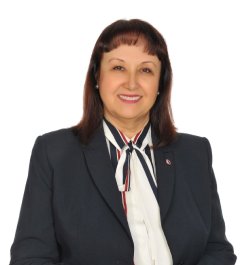 |
Successful accredita on processes in higher educa on demand more than technical compliance; they require a deep-rooted commitment to Total Quality in Educa on (TQE), supported by visionary leadership and comprehensive stakeholder engagement. Grounded in over three decades of field experience, this presenta on offers a human-centered perspec ve on Total Quality Management (TQM) and its applica on within Language Educa on. The session will explore the founda onal principles and evolving defini ons of TQM and TQE—both in general educa on and within the specific context of English Language Teaching (ELT). A historical overview will trace the global and na onal development of quality movements, with par cular a en on to milestones in Türkiye. The presenta on will further highlight examples of good prac ce drawn from long-standing professional involvement in teacher educa on, both preservice and in-service, and through professional development programs conducted in collabora on with NGOs such as İNGED and its Q-ELT Special Interest Group. Additional focus will be placed on a series of quality-focused publica ons, na onal and interna onal projects, and recogni ons that have shaped this human-centered approach. The session will also reflect on the strategic vision of Kent University, emphasizing how aligning ins tu onal goals with quality assurance prac ces—anchored by strong leadership and well-structured stakeholder training—can facilitate a transforma ve path toward meaningful accredita on. This holis c, experience-based narra ve posi ons TQE not merely as a compliance tool, but as a philosophy of con nuous improvement, empowerment, and sustainable educa onal excellence. |
| 14:25- 14:40 | BREAK |
| Time: 14:40–15:20 | Raising the Bar: What Makes a Language Program ‘Quality’? |
| Didem MUTÇALIOĞLU DEDAK 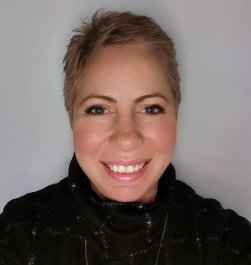 |
As quality assurance and accredita on processes con nue to evolve globally, English language programs are increasingly expected to demonstrate more than just effec ve instruc on— they must also show coherence in design, assessment, and con nuous improvement. While broader accredita on standards tend to focus on institutional structures, English language programs bring unique pedagogical, administra ve, and cultural challenges that require tailored approaches. This plenary explores what it truly means for a language program to be “quality” and how that quality can be inten onally built, demonstrated, and sustained. Drawing on both interna onal frameworks and local prac ces, the session will unpack the core elements of a high-quality English language program. Prac cal insights will be offered to support ins tu ons in raising the bar and crea ng sustainable, evidence-based quality structures that go beyond mere compliance. |
| Time: 15:25–16:05 | Putting Professional Development at the Heart of Quality Assurance in ELT |
| Ayşen GÜVEN British Council Türkiye 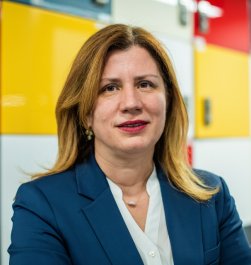 |
Sustainable, relevant, and context-specific professional development (PD) opportuni es are essen al for ensuring highquality English language provision. However, access to such opportuni es varies widely, and many teachers lack the support they need to address the diverse challenges they face in the classroom. In the absence of sustainable support systems, this inequality undermines broader quality assurance efforts and leaves many teachers professionally isolated. This raises a cri cal ques on: how can ins tu ons, ministries, and quality assurance bodies overcome the 'PD challenge' and support teachers in ways that truly enhance classroom learning? Drawing on a decade of experience working with na onal and ins tu onal policymakers in Türkiye, I will share insights and reflec ons from British Council projects that have aimed to address this challenge. I will argue that robust QA processes must place professional development at their core—not as a one-off interven on, but as part of a sustainable, long-term model. This model must begin with deep contextual insight, offer adaptable and scalable forms of support, and needs to be grounded in the principles of communi es of prac ce. This model empowers teachers and has the poten al to create meaningful, systemic improvements. |
| 16:05- 16:20 | BREAK |
| 16:20- 17:30 | PANEL: Moderator: Mehtap ÇİÇEN Panelists: Didem MUTÇALIOĞLU Prof. Dr. Dinçay KÖKSAL Prof. Dr.Hatice Camgöz AKDAĞ Ayşen Güven |
| ROOM 1 –Testing and Assessment Session 1 Time: 10:00–11:00 Session 2 Time: 11:15–12:15 |
Zeynep Urkun |
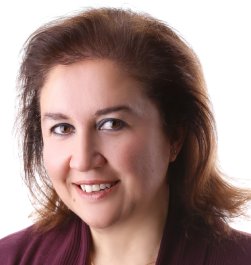 |
Session 1: An essential element in any language program seeking accreditation is the establishment and maintenance of a transparent, informative, and wellfunctioning assessment system. Such a system should not only evaluate learners’ progress and achievement in alignment with the program’s learning objectives but also actively promote learning by providing meaningful feedback and guidance. To create an effective assessment system, it is crucial to develop a Comprehensive Learning System (CLS), as outlined by O’Sullivan (2011). This approach integrates three key components—Curriculum, Delivery, and Assessment—ensuring they are designed in alignment to support each other. This session will explore how to establish a CLS and highlight the critical role that Placement Testing plays in laying a strong foundation for teachers, learners, and administrators. We will also examine the processes of placement and re-placement, with a focus on ensuring learners are fairly placed and able to progress smoothly through the language program. Session 2: In this follow-up session, we will explore key elements of an effective assessment system. This includes determining the appropriate types, number, and frequency of assessment components, as well as establishing clear feedback cycles—both in terms of method and timing. We will also consider how to allocate weightings to each component to ensure that the system communicates the right messages to all stakeholders. Additionally, we will examine what should not be assessed—and why—in order to maintain the system’s validity and reliability. Finally, we’ll briefly review the assessment requirements of selected accreditation schemes and analyze them with the aim of developing the necessary documentation for accreditation. |
| ROOM 2 – Curriculum and Syllabus Design Session 1 Time: 10:00–11:00 Session 2 Time: 11:15–12:15 |
İlkay Bülbül |
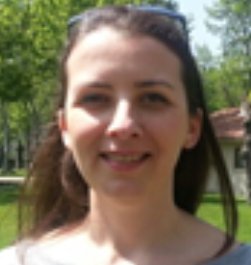 |
Session 1 Abstract: This session will explore the fundamentals of curriculum and syllabus design, focusing on key principles such as the alignment of student learning outcomes (SLOs) with other curricular components and assessment tools with an emphasis on the sequence and interrelatedness of the program structure. Participants will have a chance to discuss the procedures and support mechanisms tailored to meet the diverse needs of students in order to ensure the achievement of targeted SLOs. The session will also address how to establish standardization in syllabus design with a focus on setting clear objectives and structuring content in line with program length. Examples of curriculum maps and pacing documents will be provided, showcasing how to effectively plan and organize a course over time. Session 2 Abstract: In this follow-up session, participants will engage in hands-on group work, exploring concrete examples of curriculum and syllabus design. The session will include practical resources such as curriculum map templates, alignment tables, syllabus outlines, and pacing plans. Through collaborative activities, participants will have the opportunity to apply these tools, discuss their relevance to different educational contexts, and reflect on their own curriculum and syllabus documents. |
| ROOM 3 – Professional Development Session 1 Time: 10:00–11:00 Session 2 Time: 11:15–12:15 |
Beril Ayman Yücel |
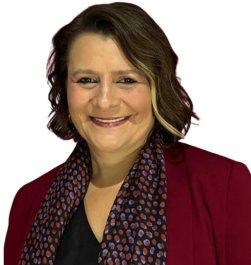 |
Session 1: Professional Development in Accreditation: Standards, Strategies, and Growth Abstract: What do accreditation bodies expect when it comes to professional development and teaching excellence? This session offers a comparative look at the PD standards outlined by various accreditation frameworks, highlighting their shared priorities and unique requirements. Participants will engage in discussions on how institutions can align with these standards while creating meaningful opportunities for teacher growth. The session will also explore performance evaluation and feedback mechanisms, emphasizing how these can be used not only for quality assurance but also to foster a culture of continuous improvement and professional empowerment. Session 2: Designing Impactful PD Cycles: From Structure to Sustainability Abstract: A well-designed professional development (PD) cycle is key to fostering continuous growth and maintaining institutional quality. This session will guide participants through the essential stages of structuring an effective PD cycle— from planning and implementation to documentation and review. Emphasis will be placed on practical methods for collecting, recording, and analyzing data on PD activities to ensure alignment with institutional goals and accreditation requirements. Through interactive activities, participants will explore tools and strategies that support sustainable, evidence-based professional development practices. By the end of the session, attendees will gain actionable insights into building transparent, goal-oriented PD systems that drive meaningful improvement in teaching and learning. |
| ROOM 4 – Quality Culture Session 1 Time: 10:00–11:00 Session 2 Time: 11:15–12:15 |
Lan Collins |
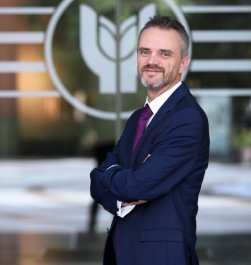 |
Session 1: Title: Quality Culture Abstract: This session will provide a comparative analysis of continuous improvement standards set by different accreditation bodies. Participants will explore what continuous improvement entails and why it is crucial for maintaining and enhancing quality in language education. The session will examine practical strategies that institutions can implement to foster ongoing development, with a focus on ensuring and improving the quality of teaching and learning processes. By understanding these standards, participants will gain insights into creating effective plans for continuous improvement in their own institutions. Session 2: Title: From Planning To Practice: Implementing Strategic Quality Initiatives Abstract: In this practical session, participants will engage with real examples of strategic and action plans designed to support continuous improvement. The session will focus on how to structure and implement improvement initiatives in line with the quality cycle, offering tools and best practices to guide participants through the entire process—from planning to execution. Participants will explore templates, tools, and examples of successful practices that can be adapted to their own institutions, ensuring sustained improvement and alignment with accreditation standards. |
| 12:15- 13:30 | LUNCH |
DAY 2 – BREAKOUT SESSIONS
| 13:30-14:30 | Quality Assurance Audit Simula on Groups are provided with a simulated self-assessment report for a foreign language school. They must analyze the findings, iden fy areas needing improvement, and create a strategic plan that aligns with con nuous improvement prac ces. This would involve proposing changes in curriculum design, teacher professional development, or assessment tools. |
| 14:30 - 14:45 | BREAK |
| 14:45-15:45 | Quality Assurance Audit Simula on Presenta on: Each group presents their task solu on to the larger group, outlining their approach, the ra onale behind their decisions, and how their plan addresses quality standards. Feedback Session: A er each presenta on, peers and facilitators provide feedback, highligh ng strengths and offering sugges ons for further refinement or improvement. |
| 15:45 - 16:00 | BREAK |
| 16:00 - 16:30 | CLOSING CEREMONY |
© School of Foreign Languages 2025. All Rights Reserved.